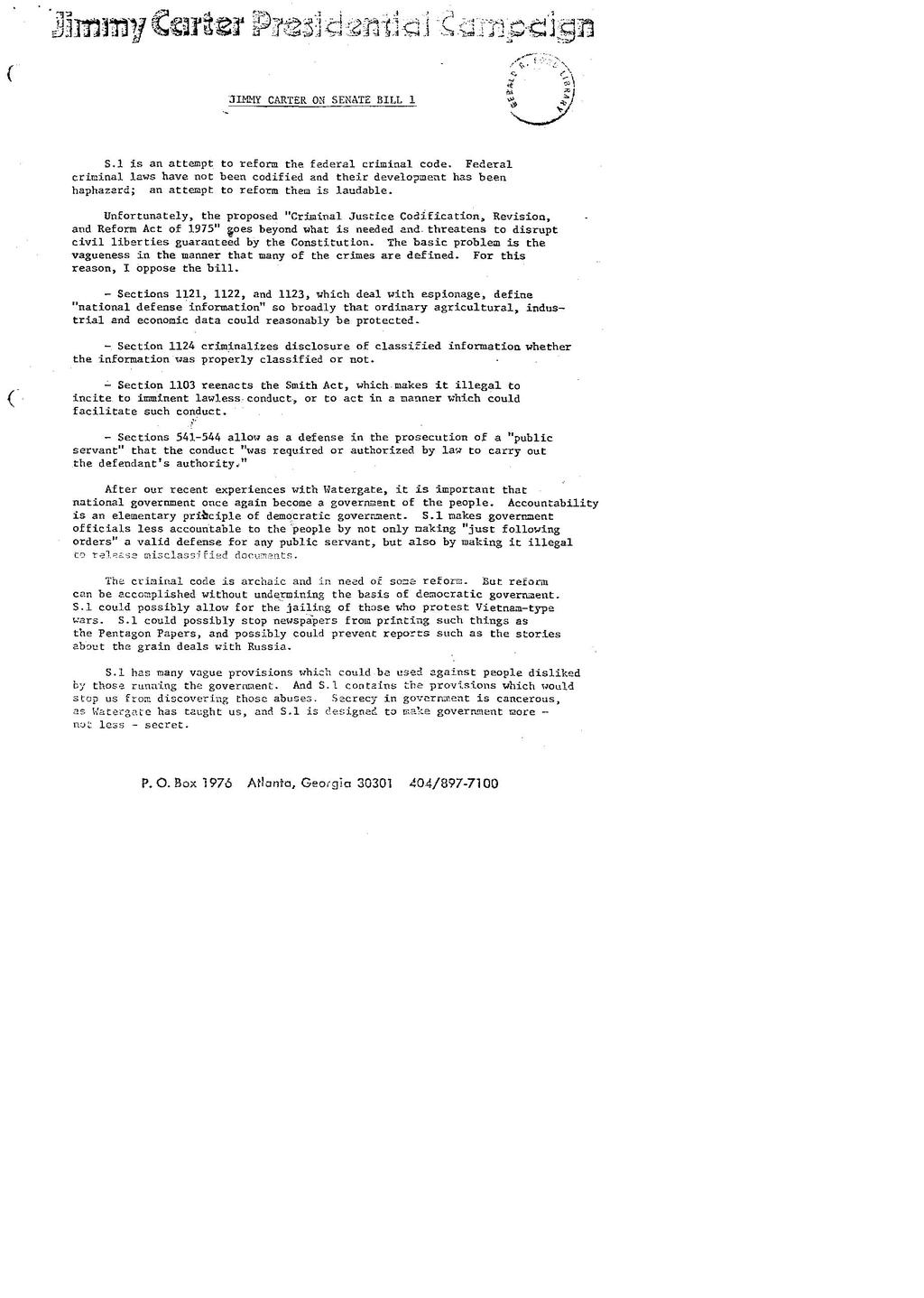Jimmy Carter Presidential Campaign
JIMMY CARTER ON SENATE BILL 1
S.1 is an attempt to reform the federal criminal code. Federal criminal laws have not been codified and their development has been haphazard; an attempt to reform them is laudable.
Unfortunately, the proposed "Criminal Justice Codification, Revision, and Reform Act of 1975" goes beyond what is needed and threatens to disrupt civil liberties guaranteed by the Constitution. The basic problem is the vagueness in the manner that many of the crimes are defined. For this reason, I oppose the bill.
- Sections 1121, 1122, and 1123, which deal with espionage, define "national defense information" so broadly that ordinary agricultural, industrial and economic data could reasonably be protected.
- Section 1124 criminalizes disclosure of classified information whether properly classified or not.
- Section 1103 reenacts the Smith Act, which makes it illegal to incite to imminent lawless conduct, or to act in a manner which could facilitate such conduct.
- Sections 541-544 allow as a defense in the prosecution of a "public servant" that the conduct "was required or authorized by law to carry out the defendant's authority."
After our recent experiences with Watergate, it is important that national government once again become a government of the people. Accountability is an elementary principle of democratic government. S.1 makes government officials less accountable to the people by not only making "just following orders" a valid defense for any public servant, but also by making it illegal to release misclassified documents.
The criminal code is archaic and in need of some reform. But reform can be accomplished without undermining the basis of democratic government. S.1 could possibly allow for the jailing of those who protest Vietnam-type wars. S.1 could possibly stop newspapers from printing such things as the Pentagon Papers, and possibly could prevent reports such as the stories about the grain deals with Russia.
S.1 has many vague provisions which could be used against people disliked by those running the government. And S.1 contains the provisions which would stop us from discovering those abuses. Secrecy in government is cancerous, as Watergate has taught us, and S.1 is designed to make government more - not less - secret.
P.O. Box 1976 Atlanta, Georgia 30301 404/897-7100
